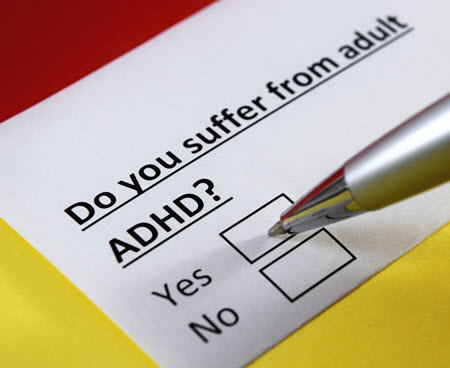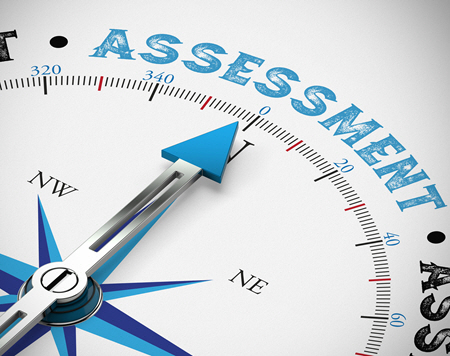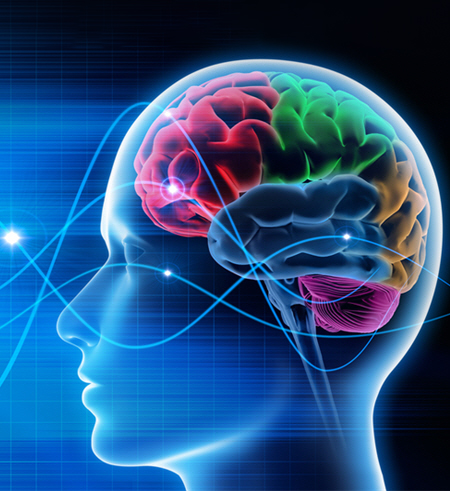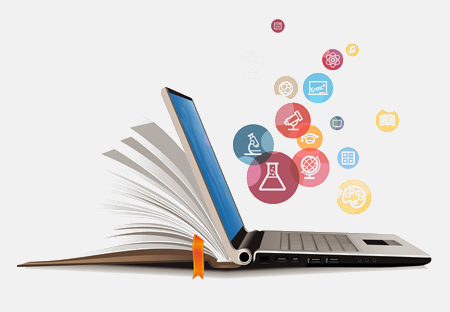 Getting a clear ADHD diagnosis is a challenge.
Getting a clear ADHD diagnosis is a challenge.
Getting an accurate ADHD diagnosis can be like walking through a foggy wood at night, but it can be different with the Center for Intention & Focus.
You may have gotten a diagnosis from one professional, but all they did was give you a questionnaire and answer a few questions. You perhaps took meds for a while but then stopped. Or you may have had a comprehensive assessment and received feedback, but somewhere between the assessment process and the treatment, all that good information got lost in translation.
Life gets super busy in adulthood, and there are loads of distractions, especially if you struggle with ADHD.
You might be an adult wondering if you have ADHD, but you have never been diagnosed. The truth is – it can be hard to know whether you have ADHD.
“As a kid, I had difficulties turning in homework, but who didn’t?”
That homework has now turned into big projects at work that you can’t ever seem to deliver on time (or without pulling an all-nighter to get done). You organize by piles, and most of life seems like a series of spinning plates that you jump back and forth to keep moving.
The ironic thing is that if you are someone with ADHD, self-assessment may not be your strong suit. Life feels chaotic and overwhelming. You tell yourself you’re “lazy” or “don’t try hard enough.” But are those struggles due to personality traits, insomnia, a medical issue, or ADHD?
I can help guide you to finally get to the bottom of what is happening.
 Here’s why getting an ADHD assessment is so important…
Here’s why getting an ADHD assessment is so important…
It’s an investment in YOU. The thorough assessment will give you all sorts of information about your strengths, weaknesses, skills, and personality.
If you have ADHD, I’ll help you understand and offer tools to help you. If you don’t, you’ll get insight into other things, such as sleep or psychological distress, that might be causing your symptoms. Either way, you’ll receive knowledge, greater clarity, and tools to change your life.
This assessment provides a wonderful foundation for neurofeedback and executive-function skills coaching.
Neurofeedback is a form of computer-aided brain training that is helpful for individuals with ADHD. The above assessment gives us the information we need for Neurofeedback training which can help you achieve a more calm, focused, and engaged brain. Please see my page on Neurofeedback for more information.
Executive-Function Skills coaching is a different approach than typical therapy. The executive-function questionnaires give you clarity on your executive-functions strengths and weaknesses. A major focus of coaching is identifying an important goal and using skills, feedback, and accountability to help you achieve your goal. The coach’s role is to help you sustain your attention and help you follow through! This process is designed to have much more frequent but brief contacts during the coaching sessions (usually 2-5 visits per week by phone or email). Please see my Executive-Function Skills Coaching page for more information about the process.
 The assessment has four steps.
The assessment has four steps.
(1) A comprehensive diagnostic interview and set of initial assessments…
This is a 90-minute session. Together in the session, I will ask you a wide range of questions, from the more typical “how was your childhood” to asking about your sleep and history of environmental allergies. The objective is to look for the root causes of your attention difficulties. There can be many reasons an individual is inattentive or hyperactive. This interview helps unlock clues for greater clarity.
After the interview, we’ll do additional tests:
Executive function…
At the end of the interview, you will be asked to complete a couple of measures of executive functioning (one on paper and another online). ADHD is a disorder of executive functioning, and the frontal part of the brain primarily controls this. The frontal part can be thought of as being the CEO of the brain: the part that helps us clarify what is important and sustains effort for task completion. The brain’s frontal lobe helps us clarify what we want, how to make it happen, and motivates us to do it.
An example of an executive function is task initiation – how good are you at starting a task if it is NOT interesting or your house will burn down if you don’t do it right now? Another is working memory, your brain’s RAM or the ability to keep relevant or multiple pieces of information in mind to accomplish a task. For example, how often have you been walking to fold the laundry, noticed the mail, and forgot to fold the laundry?
Personality…
The personality measure will be administered online and will take about 20-40 minutes. This assessment is the gold standard and most evidence-based personality measure, the Five Factor Model (FFM), also known as the Big Five.
This assessment will help you clarify where you stand compared to others regarding sensitivity to negative emotions, extraversion, openness to experience, agreeableness, and motivation/self-control. I find it helpful to have a few questions you would like the test to help you answer about yourself, such as, “How much does worry impact my life compared to others?” This assessment helps raise awareness and gives you a language to describe your personality tendencies.
I believe that personality is not destiny. However, personality is your ” bent ” as a person. Understanding the dynamic between personality and life goals can be crucial. For example, you desire promotion in a very competitive job situation in a competitive environment, but being too agreeable a person can be a liability. While your agreeableness gives you certain strengths, engaging in overly agreeable behavior can reduce your effectiveness. If you behave too agreeably, you may struggle to hold colleagues accountable for deadlines or avoid asking for a promotion. The “less agreeable” behaviors are effective choices that go against your personality “bent.”
This is one example of where personality awareness and intentional action would be highly beneficial and important. I discuss the personality assessment of the Five Factor Model (FFM) further on the Personality Assessment page.
Rule out other mental health conditions and further clarify personality through an online assessment…
To identify any other mental health challenges that may interfere and highlight some additional personality aspects, I will have you complete the Personality Assessment Inventory (PAI) online.
This assessment will take 40-60 minutes. In combination with the diagnostic interview and additional assessments, you will have a 360-degree perspective to understand more about yourself. As with the FFM, it can be beneficial to have questions you would like to answer about yourself (e.g., “Am I more negative toward myself than others?” “Is my anxiety rooted in my physiology or based on my thinking?”)
 (2) QEEG measurement of your brain with a computer-aided assessment of attention…
(2) QEEG measurement of your brain with a computer-aided assessment of attention…
The quantitative electroencephalogram (QEEG) measures brain waves. The brain works through both electrical and chemical measures. The QEEG tells us if your brain is under- or over-aroused. If your brain is under-aroused, which 85% or so of individuals with ADHD experience, then often individuals respond well to a certain ADHD medication. Individuals respond better to another set of ADHD medications if the brain is over-aroused.
Your QEEG results can be shared with your medical doctor to help inform your medication regimen, or they might suggest other helpful interventions such as Neurofeedback or a referral for a sleep evaluation. What I suggest (especially for individuals with “under-aroused” brains) is that we first get clear via the assessment with what is going on; next, use some form of treatment to help “wake up” your brain. Then finally, we focus on learning skills to make your life work well (e.g., Executive-Function Skills Coaching). Approaching it in this order helps you achieve a better and more efficient outcome.
The computer-aided assessment of attention (TOVA) is designed to assess if there is a deficit of attention. The 21-minute test involves watching a computer screen and clicking a button when certain symbols are presented. While this is a boring test, it’s not all that long, and the benefit includes an objective measure of attention or inattention, which is needed and relevant for physicians. This test has been heavily researched and is widely regarded in the medical field.
 (3) Assessment of intelligence and screening for learning disorders…
(3) Assessment of intelligence and screening for learning disorders…
This 90-minute session is optional and depends on your goals for the assessment. The combination of an IQ test and learning disorders (LD) questionnaire gives you a snapshot of your intelligence compared to your academic achievement. These are paper and pencil tests. In the research literature, it has often been observed that individuals with ADHD have a discrepancy between IQ and achievement. This discrepancy is significant for gifted individuals with ADHD as they are often not identified with ADHD in school because they have performed “well enough” not to be previously assessed for ADHD. Further, these assessments give us feedback about your working memory and processing speed, which are additional pieces of the puzzle to consider.
Also, learning disabilities occur more frequently in people with ADHD, so this assessment allows us to screen for learning challenges. Identifying a learning challenge and getting a good referral can make all the difference. We can help you identify and connect with an excellent referral.
If an ADHD diagnosis seems likely, you’ll receive a letter requesting that your physician review and rule out other medical conditions that might be responsible for your challenges. For example, it is important to rule out anemia and thyroid disorders as potential inattention causes.
 (4) A feedback session…
(4) A feedback session…
This is where we’ll review the results of all your assessments. Once we have the feedback from your doctor, we will compile all the data we have collected. This provides a 360-degree vantage point to clarify what is going on.
After reviewing the assessment results, there will be a list of recommendations for the next steps. I offer the opportunity to continue working together after the assessment to do Neurofeedback to help optimize your brain, improve your performance through Executive-Function Skills Coaching, or both.
I offer the ability to take that good knowledge obtained through the assessment and seamlessly apply it toward improving your life. Whether diagnosed with ADHD or not, you will walk out of the experience with greater knowledge about yourself and guidance on optimizing your brain and life.
Isn’t it time you figure out what is going on?
Get off the sidelines and into the game!
What you don’t know can hurt you or inhibit your potential in life.
If you’re seeking answers that have evaded you for years or want to dig deeper into what makes you tick, please call us at: (832) 831-0178.
I look forward to partnering with you in unlocking more about who you are and some about how you’re built. Together, we’ll set you up for success and a clearer vision of your path ahead.

